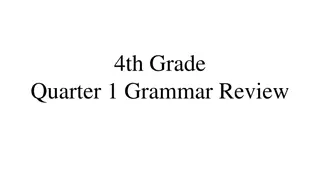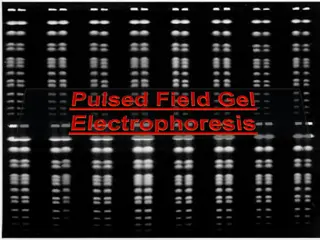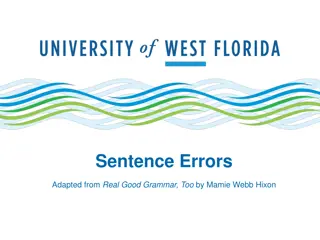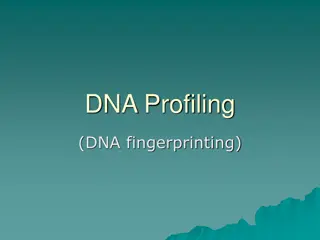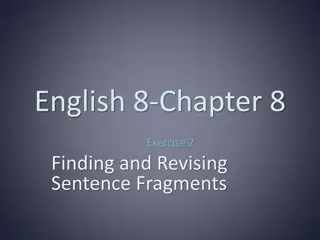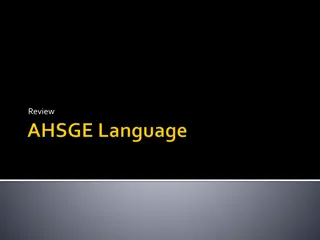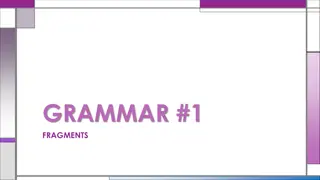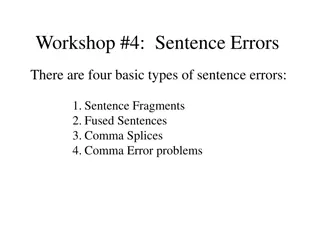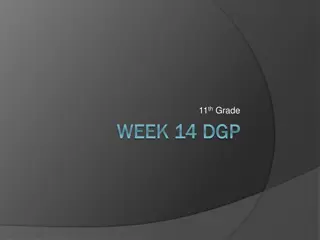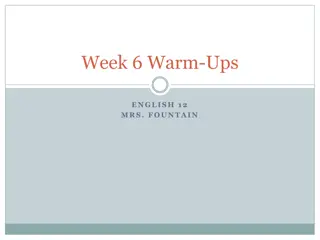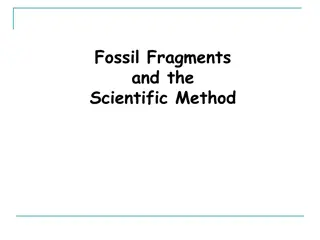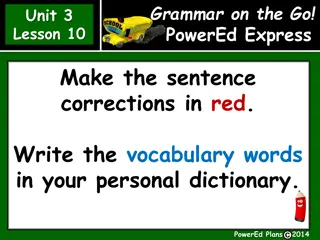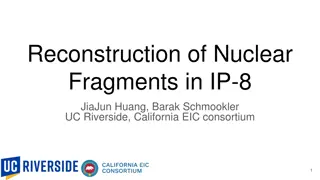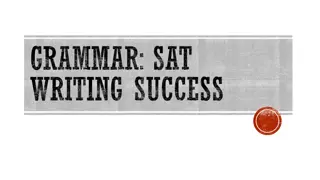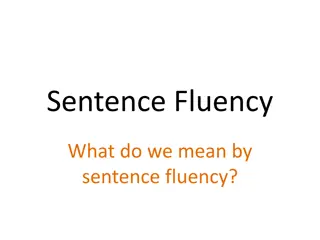Understanding and Correcting Sentence Fragments
Learn to identify and fix sentence fragments, incomplete groups of words that do not convey a full thought. Explore types of fragments, such as missing subjects or verbs, and discover how to turn them into complete sentences. Enhance your writing skills by recognizing and rectifying common fragment errors.
Download Presentation

Please find below an Image/Link to download the presentation.
The content on the website is provided AS IS for your information and personal use only. It may not be sold, licensed, or shared on other websites without obtaining consent from the author. Download presentation by click this link. If you encounter any issues during the download, it is possible that the publisher has removed the file from their server.
E N D
Presentation Transcript
SENTENCE FRAGMENTS How to Recognize and Correct Them
RECOGNIZING SENTENCE FRAGMENTS: Sentence fragments are groups of words that don't express a complete thought. They are only part of a sentence. They are fine to use in conversation, but they are a no-no when it comes to any kind of formal or academic writing. We talk about sentence fragments in contrast to complete sentences. A complete sentence expresses a complete thought.
RECOGNIZING SENTENCE FRAGMENTS: Here are a few examples of fragments and complete sentences: Fragments: Complete Sentences: On the table. Over there. This thing. If I walk home. My hat is on the table. The dog ran over there. This thing is bothering me! I'll call you if I walk home.
RECOGNIZING SENTENCE FRAGMENTS: When a group of words is missing important information, it no longer expresses a compete thought. There are four types of sentence fragments: 1. Missing Subject Fragments 2. Missing Verb Fragments 3. Missing a Subject and a Verb Fragments 4. Dependent Clause Fragments
SENTENCE FRAGMENT 1 (MISSING SUBJECT FRAGMENT): Subjects tell whom or what the sentence is about. If the subject is missing, we are left wondering who or what performed the action. Ran around the tree. (Who ran around the tree?) Will walk into the room. (Who will walk into the room?) Shot through the sky. (What shot through the sky?)
FIXING SENTENCE FRAGMENT 1 (MISSING SUBJECT FRAGMENT): We can fix each of those fragments and turn them into sentences by adding a subject. The dog ran around the tree. The president will walk into the room. A rocket shot through the sky.
SENTENCE FRAGMENT 2 (MISSING VERB FRAGMENT): Verbs tell what the subject did or is. If the verb is missing, we are left wondering what the subject did or what the subject is. My little sister. (My little sister did/is what?) My cute little dog. (The cute little dog did/is what?)
FIXING SENTENCE FRAGMENT 2 (MISSING VERB FRAGMENT): We can fix these types of fragments by adding a verb. My little sister ran away. My cute little dog is cuddly.
SENTENCE FRAGMENT 3 (MISSING SUBJECT AND VERB): Some fragments are missing both subjects and verbs. That means that we don't know whom the sentence is about or what they did or are. On the table. Over there. These are prepositional phrases rather than clauses.
FIXING SENTENCE FRAGMENT 3 (MISSING SUBJECT AND VERB FRAGMENTS): We need to add a subject and a verb to these prepositional phrases in order to make them complete sentences. The corn is on the table. My doggie ran over there.
SENTENCE FRAGMENT 4 (DEPENDENT CLAUSE FRAGMENTS): Dependent clauses are groups of words that have a subject and a verb, but don't express a complete thought on their own. They are sentence fragments and dependent upon an independent clause . Whenever I walk the dog. Until my little sister walks into the room.
FIXING SENTENCE FRAGMENT 4 (DEPENDENT CLAUSE FRAGMENT): You can fix these kinds of fragments by connecting the dependent clause to an independent clause (a group of words with a subject and a verb that expresses a complete thought). You can add the independent clause to the beginning or the end of the dependent clause. Whenever I walk the dog, I feel great. I will stay here until my little sister walks into the room.


